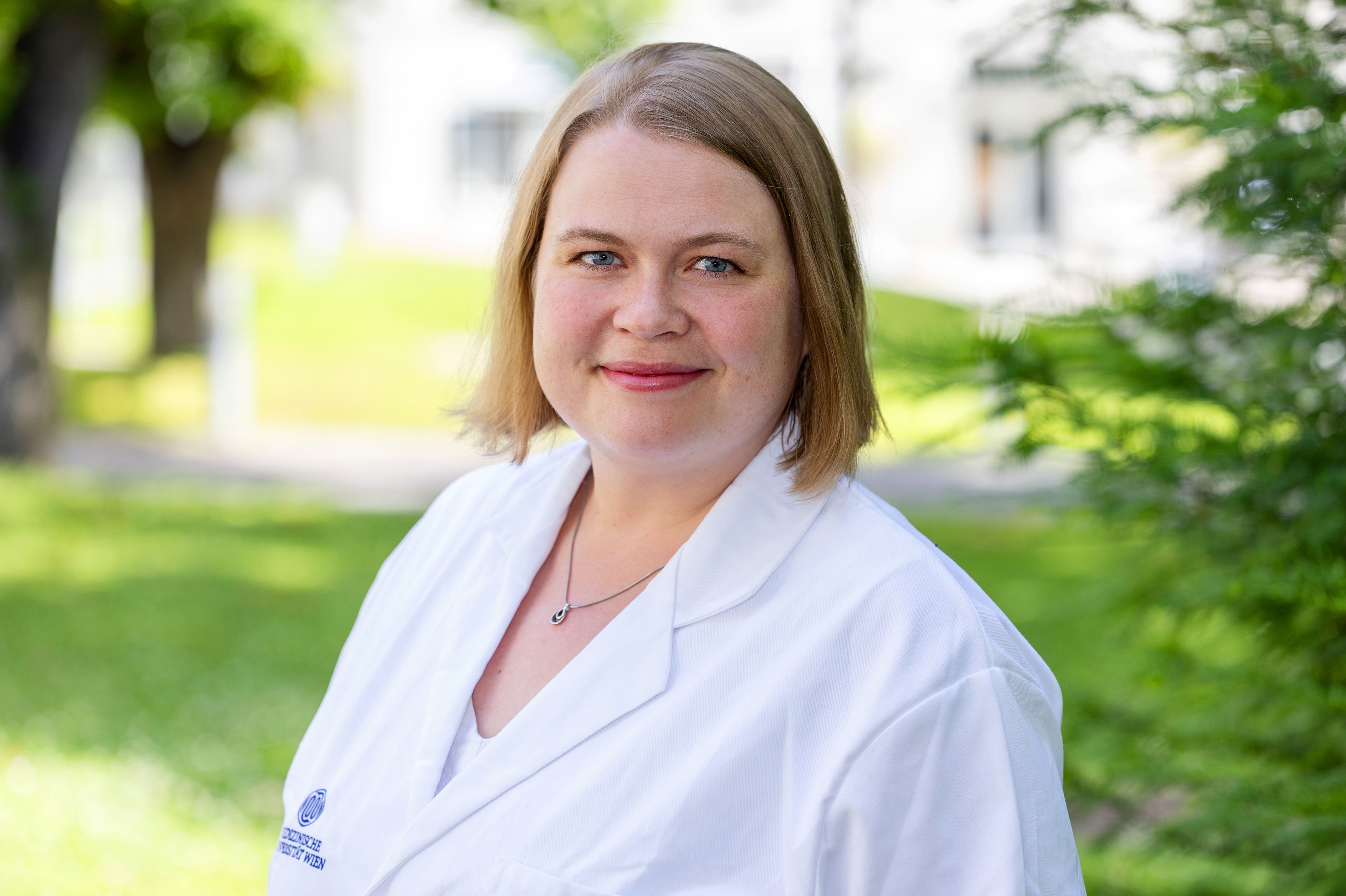
(Wien, 10-07-2023) Inga Koneczny, Neuroscientist at the Department of Neuropathology and Neurochemistry at the Department of Neurology of MedUni Vienna, has successfully secured a highly endowed grant from the EU's European Research Executive Agency. The IgG4-TREAT project is a training program for doctoral students in the field of research into specific autoimmune diseases. Inga Koneczny is the consortium coordinator and project leader.
The project comprises an international consortium of researchers from Austria, France, the Netherlands, Germany, Greece, Turkey and Italy. The funding amounts to 2.6 million euros, 0.54 million euros of which has been allocated to MedUni Vienna.
IgG4 autoimmune diseases (IgG4-AID) are rare, yet represent a significant group of serious diseases overall, affecting many different organs, e.g. skin, brain, nerves and kidneys in patients who often fail to respond to current treatments. Examples of IgG4-AID include MuSK myasthenia gravis, pemphigus vulgaris, thrombotic thrombocytopenic purpura, or certain forms of autoimmune encephalitis. IgG4-AID share similar features indicating a comparable underlying immunopathogenesis, making a common approach to identify new therapeutic targets and test new treatment strategies possible and necessary.
Inga Koneczny and her colleagues assume that genetic risk factors and an impaired immune response can lead to increased susceptibility to the production of antibodies against the body's own proteins. These belong to a special subclass called IgG4, which is normally harmless but can cause illness in these patients by interfering with normal functions in the body.
"We are the first consortium to aim to comparatively study IgG4 AID, including pathogenic IgG4, as well as the cells, molecules and mechanisms involved in IgG4 autoantibody production. We will use an exploratory multi-omics approach in combination with state-of-the-art cell and molecular biology methods," explains Inga Koneczny. To this end, the researchers will establish a new humanised mouse model of IgG4-AID to develop and test a new immune-apheresis-based therapy aimed at providing immediate relief for all IgG4-AID patients.
The innovative training program combines university and multidisciplinary research-based training with state-of-the-art web-based teaching and personal mentoring from the academic and non-academic sectors. The aim is to promote a new generation of IgG4-AID experts who are qualified for innovative multidisciplinary translational research with a focus on biomedical product development, thereby opening up academic careers as well as in industry.
About Marie Skłodowska-Curie’s Actions & Support to Experts
REA.A - Marie Skłodowska-Curie’s Actions & Support to Experts is a specific activity within the European Union Framework Program for Research and Innovation, known as Horizon Europe, a funding program aimed at supporting excellence and mobility of researchers in Europe. MSCA Doctoral Networks focus as a specific part on the support of doctoral programs and provide backing to training networks that carry out research projects for doctoral students in collaboration with different partners.
MSCA Doctoral Networks enable doctoral students to conduct research in international and interdisciplinary settings. They provide a wide range of training and development activities to help doctoral students develop their skills, knowledge and career opportunities. The networks are formed by consortia of institutions, such as universities, research centres and companies, to foster collaboration and knowledge exchange.
About the Person
Inga Koneczny is a project leader at the Division of Neuropathology and Neurochemistry at the Department of Neurology at MedUni Vienna. She studied Molecular Biology at the University of Vienna and subsequently completed her PhD studies in Clinical Neurosciences at the University of Oxford. Subsequently, she was a postdoctoral researcher at Yale University (until 2014) and Maastricht University (until 2016). As early as during her PhD studies, she conducted research on autoantibodies of myasthenia gravis patients. She continued her research on the disease at Yale and Maastricht Universities. Upon her return in November 2016, she took up a postdoctoral position at the (at the time) Clinical Institute of Neurology in the group of Romana Höftberger, with whom she worked on the development of innovative assays for the discovery of new anti-neuronal autoantibodies. For her research achievements, she has already obtained esteemed grants (DOC fFORTE of the Austrian Academy of Sciences and the Erwin-Schrödinger Foreign Fellowship of the FWF). In 2018, she won a prestigious Hertha Firnberg project of the FWF. She is also the author and co-author of 27 scientific publications.